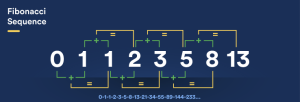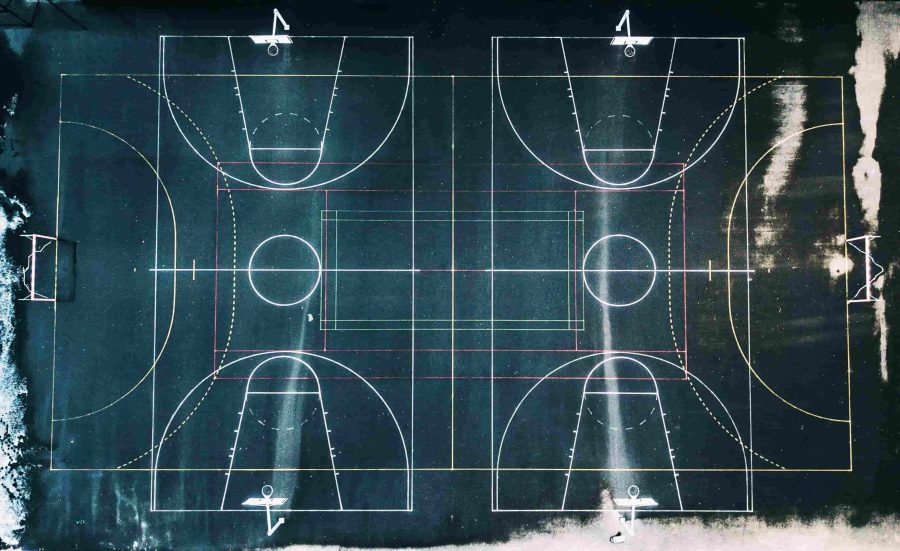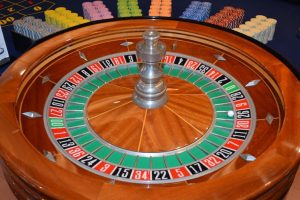You may have heard the term ‘betting system’ if you regularly wager at online sportsbooks. After all, this can incorporate any number of rules and methodologies to help select your bets. These systems can form part of a much broader betting strategy, too.
Of course, sports betting systems can be hard to understand and implement. Formulating the one that works for you is also complicated. So, let’s take a closer look at betting systems and how they work in the realm of sports wagering!
What is a Betting System?
A quick Google search of the sports betting term ‘betting system’ will bring up plenty of articles that focus on strategy. However, while there’s a significant crossover between sports betting systems and betting strategies (we’ll touch more on this later in the guide), they’re also separate entities that need to be treated as such.
A betting system describes a set of predetermined rules and processes that precisely define how you make wagering selections. Whether picking the winner of the next NFL regular season or betting on specific gameweeks and matches, your system will enable you to make the best value selections and wager at optimal odds.
Interestingly, different betting systems are more suited to specific sports, while others may be more or less viable depending on your appetite for risk. So, it’s essential to understand specific betting systems in detail before you choose one that’s most likely to work for you.
How Betting Systems Work

As sports betting involves results influenced by unpredictable variables, you have no deterministic edge as a bettor. Sportsbooks actively use betting systems to help set more accurate and enticing odds. They also factor in a commission of around 10% into their odds calculation. This creates a de facto edge on every wager they accept.
So, it makes sense that creating your own betting systems can help to counter this edge and optimize your own chances of winning. Specific systems may also focus on minimizing losses or maximizing returns, depending on your appetite for risk and preferred wagering strategy. We’ll use the classic ‘Martingale’ system for our example. This system works as an effective football betting system.
The Martingale system aims to maximize each win’s value. Typically, you’ll double your unit bet after every loss. Conversely, bettors will wager their base stake immediately after a win. In sports betting, you’ll also target even matchups where the implied probability of at least two outcomes is close to 50%.
So, you may decide to bet on the outcome of a clash between the Los Angeles Lakers and Los Angeles Clippers in the NBA. The Lakers are priced at +155, implying a 39.3% probability of a home win. The Clippers are priced at -155 and have a 60.7% chance of prevailing. Let’s say you choose to back the underdogs with a unit bet of $5. If this wager is unsuccessful, you’ll target a match with similar odds, increasing your stake to $10. You’ll continue this until one of your selections wins. After that win, you’ll return to wagering a single unit bet.
The goal is to cover successive losses with a relatively sizable win. It’s a betting system that’s focused solely on maximizing returns.
50% Welcome Bonus Up to $1,000
50% Welcome Bonus Up to $1,000
- Official betting partner of La Liga, Golden Boy, and the LFA, offering Pick'em and Survivor
- The earliest moneylines, with access to odds before events commence
- Cutting-edge live in-play sportsbook, with multi-view options
Strategy vs. System: What’s the Difference?
As we’ve already touched on, there are prominent areas of crossover between betting systems and betting strategies. In fact, these terms are generally used interchangeably, but this ignores the subtle differences that separate these two entities.
In simple terms, a sports betting system describes a finite number of rules and methodologies that help you to research and place bets. A betting system will also influence how you set and scale your unit bet over time and in response to losing or winning wagers.
Matched betting is an example of a popular betting strategy and one that requires you to target specific bets with two similarly priced outcomes. It also dictates the use of free bets as you look to cover all potential match outcomes while guaranteeing at least a nominal profit.
As for sports betting strategies, they describe a much wider and overarching approach to sports wagering. Because of this, your strategy may incorporate one or more betting systems, which help you to wager more methodically and either minimize the risk of loss or optimize potential returns.
Are Betting Systems Legal?
Sports betting systems are completely and unequivocally legal. No federal or state laws exist to prohibit examples such as matched betting or progressive wagering.
However, there are some betting systems that may be discouraged or frowned upon in some quarters. Take the aforementioned Martingale System, which doubles your unit bet with every successive loss. While the goal here is to maximize the value of each win, it requires you to exhaust your bankroll relatively quickly and effectively chase losses aggressively.
Of course, loss-chasing (either emotive or otherwise) is widely discouraged in sports betting, as it can make you wager outside your means and trigger mounting debts. So, despite its popularity (especially among well-resourced bettors and high rollers), the Martingale System is one of the most criticized betting techniques in existence.
Other, less popular, betting systems are also lacking in merit and arguably a little one-dimensional. Take backing the second favorite in horse races, for example, which theoretically enable you to wager on relatively fancied runners at superior odds.
However, it’s never wise to pick winners based on just one factor or trend, even if it does achieve minimal success from time to time. Ideally, you should prioritize more in-depth and thoughtful betting systems that take a broader selection of factors into account.
Why are Betting Systems Important?
We’ll talk more about the best and most effective sports betting systems below, but it’s important to first reinforce the importance of using certain methodologies to introduce order into your gambling activity and effectively counter the prevailing house edge. Here are some factors in favor of developing a viable betting system:
- Gain a Competitive Advantage: While there’s no such thing as a gambling system that never loses, it’s important to remember that sportsbooks use commission and their own unique betting systems to generate a house edge. So, it’s important to negate this edge and use sports betting systems to gain your own competitive advantage.
- Create Opportunities for Guaranteed Profits: With systems like matched betting, successful execution can also unlock guaranteed (albeit nominal) profits. For example, you could lay a back bet on the Lakers to beat the Clippers in the NBA, at identical odds through a dedicated betting exchange. By using one or more free bets, you can secure at least some level of profit in some instances.
- Set Optimal Stake Amounts: When you use systems such as the Kelly Criterion, you can use a mathematical formula to establish the optimal amount of money to commit to each individual wager. This is based on the live odds of your chosen outcome and the implied probability values on a particular match, while it ultimately recommends a percentage of your bankroll that you should consider wagering. We’ll touch more on this later in the guide too.
Betting Systems You Should Give a Try
Now it’s time to explore the best and most effective sports betting systems in a little more detail. Remember, we’ve already covered the controversial but high profile Martingale system, so here are some alternatives that are worth considering!
Fibonacci System

We’ll start with the Fibonacci system. This system offers mathematical sports betting and has similarities with the Martingale system. While it also encourages you to increase your bet size whenever you lose a wager, the scale at which you raise your unit bet is a little more gradual.
More specifically, this system requires your next bet to be determined by adding your two previous stakes together. For example, let’s say that your unit bet is $5 and your initial wager losses. Let’s see how your stake amounts would progress following five successive losses using both the Fibonacci and Martingale systems:
| System | Bet 1 | Bet 2 | Bet 3 | Bet 4 | Bet 5 |
| Fibonacci | $5 | $10 | $15 | $25 | $40 |
| Martingale | $5 | $10 | $20 | $40 | $80 |
As you can see, your stake amount after five wagers is doubled when using the Martingale system. This creates a far greater strain on your bankroll and a more aggressive approach. However, the Fibonacci is less effective at recovering previous losses. So the Martingale system’s heightened risk does unlock potentially higher returns and profits if it can be sustained.
Paroli System
Both the Fibonacci and Martingale systems are known as ‘negative progression’ betting systems, which see you increase your stake with each loss. The Paroli system, however, requires you to double your wager after each win until three successive triumphs are achieved, with this known as a ‘positive’ progression system.
So, let’s say that your first stake on an NFL regular season game is $100, placed at odds of +200. A win here would see you increase your stake to $200, while a further triumph would see you subsequently wager $400. Regardless of the result of your third bet, you’ll then return to your initial stake, ensuring that you bank a sizable profit over the course of these four wagers.
The idea here is to capitalize on wins and minimize the risk of losing money from your original bankroll. It’s therefore favored by risk-averse or less experienced bettors across a broad range of sports.
Labouchere System
The Labouchere System is one of the most complicated sports betting techniques, as it involves creating a bespoke sequence of numbers that should ideally equate to your desired level of profit.
Unit bets are determined by the total sum of the first and last numbers in the sequence, while the system offers innate flexibility by allowing you to set your own digits and adjust them over time. For example, if you create a simple 1-2-3 sequence, the potential profit for each cycle of wagers is $6, while your stake should be equal to the first and last numbers ($4).
If your bet is successful, remove the first and last number from the sequence (1 and 3 in this instance). If you lose, you’ll be required to add the amount staked to the end of the sequence (4), with this sequence continuing until you win.
Of course, this is a highly complex betting system, and one that is synonymous with roulette rather than sports wagering. However, it does afford you a more flexible approach to risk-management, and is ideal if you have full comprehension of how the system works.
Labouchere Reverse System
As the name suggests, the ‘Labouchere Reverse System’ is a progressive iteration of the classic alternative. In fact, you’ll simply invert the rules and bare the bets on the sequence following losses, before adding the last stake amount played following a win.
Like the standard Labouchere System, this requires significant understanding and disciplined application. As an inherently progressive betting system that requires you to build on successes, this is a relatively risk-averse approach that minimizes the risk of incurring sizable losses over time. It also retains the same level of flexibility.
D’Alembert System
The intriguingly named ‘D’Alembert System’ is known as quite a conservative betting system, which sees you increase your wager size by a single unit bet after each individual loss. You’ll also decrease your stake by one unit bet after a win, and it’s driven by a balanced approach that’s incredibly easy to understand.
Over time, you’re unlikely to record ever big wins or losses by using the D’Alembert System. Instead, you can expect an RTP rate that’s modest and helps you to retain as much of your starting bankroll as possible, enabling steady progression and incremental returns.
Kelly Criterion
The ‘Kelly Criterion’ model is best known as a tool for use in financial trading and investment markets, but it actually started out life as a betting system in roulette. However, it now has huge appeal in the sports betting realm, while its core purpose is to calculate the optimal amount of cash to commit to each individual wager. There’s even an equation to help you calculate this:
F = (BP – Q) / B
F = Bet size (expressed as a percentage of your bankroll)
B = Wager Odds (expressed in decimal format)
P = The implied probability of your wager being successful
Q = Relays the probability of your bet losing (expressed as 1 – P).
To provide some context, let’s look at the NBA clash between the Golden State Warriors and New York Nicks. You can back the Warriors to prevail at decimal odds of 1.82, which implies a 55% probability of a home win. This means that the chances of you losing are approximately 45%, with the draw not a viable consideration here.
In this instance, the equation will read as follows:
0.0012 = (0.82*0.55 – 0.45) / 0.82
This creates a minimal bankroll percentage, but you can multiply this by 100 to establish a value of 0.12%. So, the recommendation would be to either wager your minimal unit bet (depending on its size) or reduce your average stake. Conversely, consider creating value and altering the odds through markets such as point spread betting and parlay wagering.
Regardless, the key is to calculate an optimal stake amount based on the odds and implied probability associated with each individual match.
The Unit Betting System
If you don’t fancy either progressive or negative betting systems, you could consider unit betting. This is an incredibly straightforward and consistent technique. Unit Betting is based on staking your unit bet value in variable increments depending on the specific market or wager in question.
Your unit bet should be expressed as a percentage of your bankroll, based on its total size and how you intend to deploy this over a specific timeframe or event. For example, your unit bet value may be $5, and this will be the average stake amount that you commit when engaging in sports betting.
Depending on each betting lines’ odds, implied probability and potential returns, you can then scale your unit bet accordingly. For example, you may double your unit bet (to $10) when wagering on short price favorites that are widely expected to win, while minimizing your stake when backing less fancied outcomes that unlock inherently higher returns.
$750 Bitcoin Sports Welcome Bonus
$750 Bitcoin Sports Welcome Bonus
- Rewards Program with points from every wager that are redeemable for prizes
- Daily reward points on NBA, NFL, Golf, and Soccer parlay boosters
- Selective live streaming, & personalized bets with #What'sYaWager feature on X
Tips for Incorporating Betting Systems
Regardless of your preferred betting system, it’s important to incorporate this successfully and in full as part of a wider wagering strategy. Here are some universal tips that can be applied regardless of how you deploy your bankroll.
- Start With a Solid Bankroll: All sports betting systems require you to start from a solid foundation. That solid base must include a carefully calculated and managed bankroll. This should be an amount that you can comfortably afford to lose. Those boundaries must be established to cover a predetermined period of time.
- Understand Your Risk Appetite: Each betting system has its own approach to managing risk and losses. Positive and negative progression systems are also different in this regard. So, not only do you need to understand the mechanisms of each betting system, but you should also comprehend how this meshes with your own risk profile.
- Combine Different Betting Systems Where Possible: It’s possible to combine multiple betting systems and techniques into a single wagering strategy. This is something you should consider. Systems like the Kelly Criterion have universal merit and help you calculate optimal stake amounts for each bet. This certainly works well in combination with a flat or unit betting system.
- Determine Which Systems Suit Specific Sports: Due to the differences between betting systems, each has its unique pros and cons. Alternative systems may also be particularly suited to certain sports. Specific systems are based on the level of skill involved in picking winners and the available wagering requirements. It’s important to understand this to identify the best system for you!
The Betting Markets for Different Betting Systems

If you decide to pick specific betting systems to suit individual sports, how can you make selections? Here’s our take on the best betting systems for individual sporting events and markets!
NBA Betting System
The NBA schedule is hectic, with franchises playing 82 matches during the regular season. This puts teams at the mercy of injuries and load management demands. With all that strain, it can make it hard for sides to string together consecutive wins.
This is especially true when backing teams who won by a close margin their last time out. Between 2018 and 2023, such teams had a win-loss record of 184-94. However, they were 112-157-9 against the spread (ATS) in the following game when favored again.
This may also reflect the fact that sides are overvalued after a close win. Either way, it suggests that any kind of progressive betting system may be flawed here. Instead, you should consider unit betting when wagering on the NBA.
MLB Betting System
Over/under betting is particularly popular in baseball and MLB, especially in matchups featuring big wagering lines (such as + or – 7.5 runs). The presence of such lines means that sportsbooks are expecting high-scoring games. This favors betting underdogs and may help to create value in match wagering.
Underdog betting can be particularly fruitful during April when sportsbooks are still calibrating their odds and gauging the form of competing sides. Interestingly, the last ten years of MLB action have seen underdogs go 1,487 – 1,866, and while this equates to a win percentage of just 44.43%, you can improve this further by targeting potentially high-scoring games.
You can also apply the D’Alembert System when betting on underdogs in the MLB. This enables you to progress your stake and maximize the value of underdog wins.
NFL Betting System
Interestingly, backing selected underdogs can also prove fruitful in NFL betting, although in this instance, it requires you to focus on lower-scoring games. For example, underdogs who scored less than (or equal to) 42 points are 205-150-10 (57.7%) since 2018.
In divisional matchups, underdogs with 42 or fewer points scored have won 59.6% of the time ATS. Those dogs produced a cumulative record of 84-57-4. So, you can target matches based on the published over/under odds and betting lines, before selecting underdogs and setting your stake.
Given historical performance and the right execution, this betting system also calls for a progressive approach. In this case, the D’Alembert or Labouchere systems may offer significant value. But this also depends on your appetite for risk and your level of experience in sports betting.
125% Deposit Bonus - Up to $1,250 to Bet on Sports
125% Deposit Bonus - Up to $1,250 to Bet on Sports
- Esports from CS:GO to FIFA to NBA2K to Call of Duty with Twitch video feeds
- 50% bonus on your sportsbook wagers once a day with Winstreak
- Various markets, including parlays, player props, futures and spreads
What is Progressive Betting?
We’ve already spoken extensively about progressive betting, which describes a system whereby you increase your unit bet after each wager. How you increase your unit bet will vary from one system to another, with ‘positive’ and ‘negative’ progressive systems available. These can be broken down as follows:
- Positive Progression Systems: With positive progression systems, you’ll increase your unit bet after each win. Popular examples include the Labouchere Reverse and Paroli Systems. These entities tend to be more preoccupied with minimizing losses and conservative bankroll management.
- Negative Progression Systems: With this type of betting system, you’ll increase your unit bet value with each loss. The Martingale and Fibonacci systems are common negative progression examples, while they’re focused on maximizing the value of individual wins. However, there are more conservative negative progression systems in play, including the D’Alembert System.
Responsible Gambling
Even if you are on a roll with a specific betting system, it is important to always keep your eye on the bigger picture and make sure you’re not betting outside of your financial means. Responsible gambling is the best betting system to utilize when wagering on sports. But, if your betting habits become overwhelming and are beginning to affect your life and those around you, know that help is just a click away.
There are several resources dedicated to helping problem gamblers and their families, such as:
Our Final Thoughts on Betting Systems
As you can see, there are plenty of sports betting systems available when gambling online. These vary between positive and negative progression systems, while they also have different levels of complexity and associated risk. Some are also frowned upon, with examples like the Martingale system encouraging aggressive loss chasing over time.
Still, you need to compare and review different betting systems in detail. That means measuring them against the size of your bankroll, appetite for risk and core objectives when wagering on sport. You should also identify a betting system that suits your preferred sports and wager types.



 Fact Checked by
Fact Checked by 





























